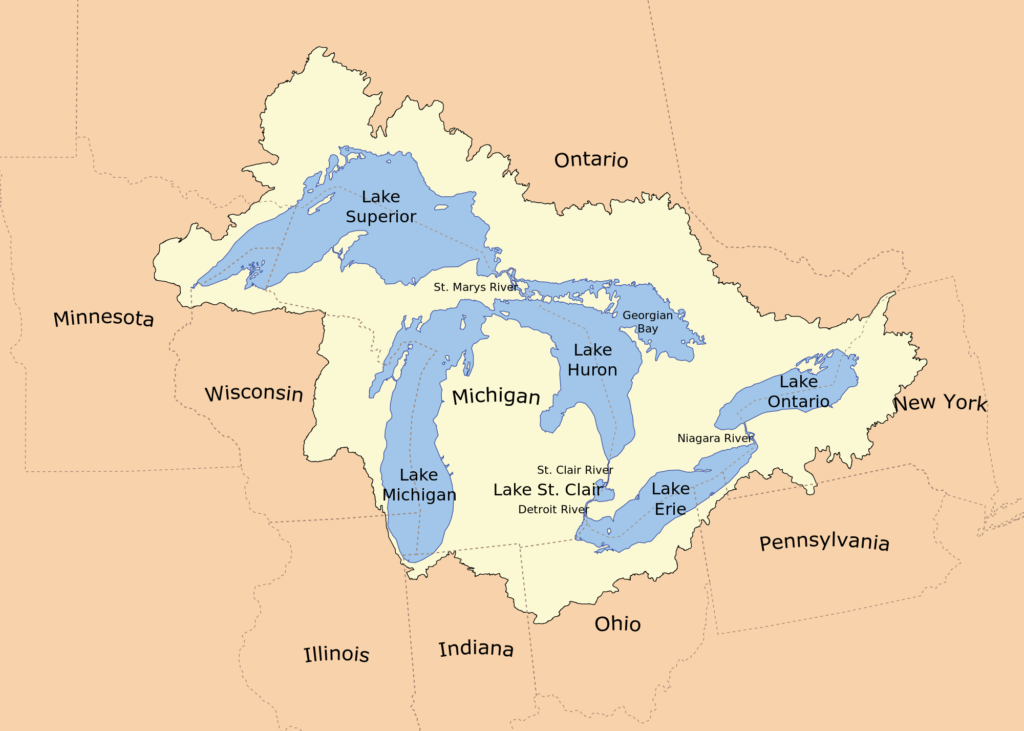The regulation plans that control flo ws between the Great Lakes have important consequences for navigation, shipping, recreational boating, hydroelectricity production, the Lake shore residents and ecosystem health. Recent variations in lake levels on Superior, Huron and Michigan led to the formation of the International Upper Great Lakes Study by the International Joint Commission to assess the physical changes to the lakes and the need for a new regulation plan for Lake Superior outflows. In this study, we will develop an adaptive management framework to optimize the regulation plan design for resilience to the considerable uncertainty related to future climate variability and change. We will pursue a Bayesian decision making scheme to establish thresholds for switching between regulation plans given prevailing climate conditions and forecasted lake levels. More information related to this study can be found here. This project is funded by the U.S. Army Corps of Engineers.
ws between the Great Lakes have important consequences for navigation, shipping, recreational boating, hydroelectricity production, the Lake shore residents and ecosystem health. Recent variations in lake levels on Superior, Huron and Michigan led to the formation of the International Upper Great Lakes Study by the International Joint Commission to assess the physical changes to the lakes and the need for a new regulation plan for Lake Superior outflows. In this study, we will develop an adaptive management framework to optimize the regulation plan design for resilience to the considerable uncertainty related to future climate variability and change. We will pursue a Bayesian decision making scheme to establish thresholds for switching between regulation plans given prevailing climate conditions and forecasted lake levels. More information related to this study can be found here. This project is funded by the U.S. Army Corps of Engineers.
Hydrosystems Group
A research group of the Civil & Environmental Engineering Department, UMass Amherst
